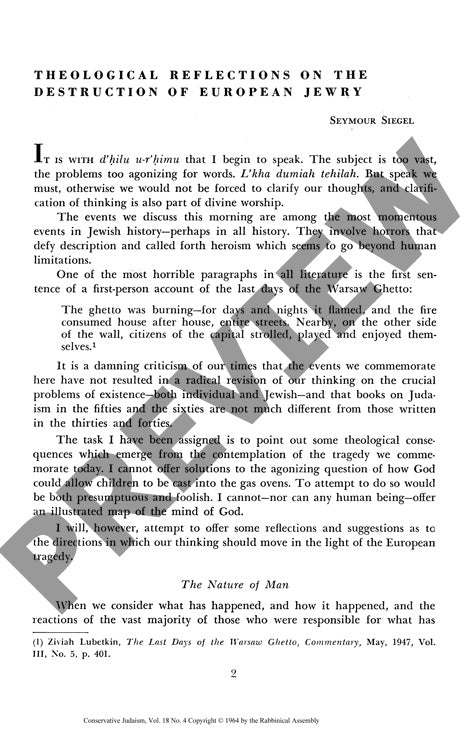Theological Reflections on the Destructi
Couldn't load pickup availability
This theological reflection examines the profound challenges the Holocaust poses to Jewish religious thought and practice. Siegel employs a hermeneutical methodology grounded in traditional Jewish sources, contemporary theological discourse, and survivor testimonies to explore fundamental questions of faith after Auschwitz. The analysis addresses four primary theological consequences: the nature of humanity, divine providence, faith, and Jewish existence. The author argues that the Holocaust necessitates abandoning utopian views of human perfectibility while recognizing the duality of human nature as capable of both profound evil and extraordinary goodness. Regarding divine providence, Siegel suggests understanding God as self-limited through the bestowal of human freedom, introducing the concept of *hastarat panim* (divine hiddenness) as a framework for comprehension. The study concludes that authentic faith (*emunah*) persists not through rational explanation but through maintaining relationship with the divine despite incomprehension. Drawing on sources from Martin Buber and survivor literature, Siegel contends that Jewish chosenness, while tragic, remains essential to Jewish identity and universal moral witness. The paper ultimately calls for renewed commitment to Torah study, recognition of Jewish suffering's potential redemptive significance, and the responsibility of survivors to live proxy lives for the murdered.

More Information
-
Physical Description
-
Publication Information
Published 1964
ISBN
-
Publication Credits
Seymour Siegel

